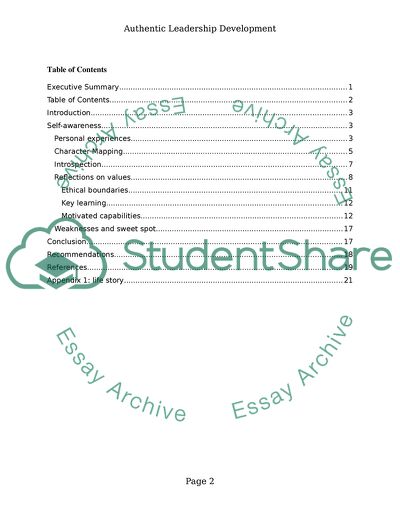Cite this document
(Authentic Leadership Development Literature review Example | Topics and Well Written Essays - 4750 words, n.d.)
Authentic Leadership Development Literature review Example | Topics and Well Written Essays - 4750 words. https://studentshare.org/human-resources/1873551-authentic-leader-journey-report
Authentic Leadership Development Literature review Example | Topics and Well Written Essays - 4750 words. https://studentshare.org/human-resources/1873551-authentic-leader-journey-report
(Authentic Leadership Development Literature Review Example | Topics and Well Written Essays - 4750 Words)
Authentic Leadership Development Literature Review Example | Topics and Well Written Essays - 4750 Words. https://studentshare.org/human-resources/1873551-authentic-leader-journey-report.
Authentic Leadership Development Literature Review Example | Topics and Well Written Essays - 4750 Words. https://studentshare.org/human-resources/1873551-authentic-leader-journey-report.
“Authentic Leadership Development Literature Review Example | Topics and Well Written Essays - 4750 Words”. https://studentshare.org/human-resources/1873551-authentic-leader-journey-report.


